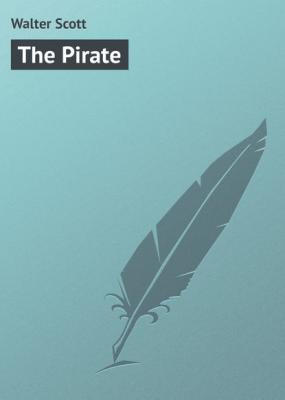The Pirate. Вальтер Скотт
Читать онлайн.| Название | The Pirate |
|---|---|
| Автор произведения | Вальтер Скотт |
| Жанр | |
| Серия | |
| Издательство | |
| Год выпуска | 0 |
| isbn |
4
Patch of ground for vegetables. The liberal custom of the country permits any person, who has occasion for such a convenience, to select out of the unenclosed moorland a small patch, which he surrounds with a drystone wall, and cultivates as a kailyard, till he exhausts the soil with cropping, and then he deserts it, and encloses another. This liberty is so far from inferring an invasion of the right of proprietor and tenant, that the last degree of contempt is inferred of an avaricious man, when a Zetlander says he would not hold a
5
A lispund is about thirty pounds English, and the value is averaged by Dr. Edmonston at ten shillings sterling.
6
7
The operation of slicing the blubber from the bones of the whale, is called, technically,
8
Meaning, probably, Patrick Stewart, Earl of Orkney, executed for tyranny and oppression practised on the inhabitants of those remote islands, in the beginning of the seventeenth century.
9
10
The sagas of the Scalds are full of descriptions of these champions, and do not permit us to doubt that the Berserkars, so called from fighting without armour, used some physical means of working themselves into a frenzy, during which they possessed the strength and energy of madness. The Indian warriors are well known to do the same by dint of opium and bang.
11
Fatal accidents, however, sometimes occur. When I visited the Fair Isle in 1814, a poor lad of fourteen had been killed by a fall from the rocks about a fortnight before our arrival. The accident happened almost within sight of his mother, who was casting peats at no great distance. The body fell into the sea, and was seen no more. But the islanders account this an honourable mode of death; and as the children begin the practice of climbing very early, fewer accidents occur than might be expected.
12
Note I.– Norse Fragments.
13
Note II.– Monsters of the Northern Seas.
14
The cormorant; which may be seen frequently dashing in wild flight along the roosts and tides of Zetland, and yet more often drawn up in ranks on some ledge of rock, like a body of the Black Brunswickers in 181.
15
16
Quadrupedumque putrem sonitu quatit ungula campum.
17
This is admitted by the English agriculturist: —
18
Government of Zetland. – At the period supposed, the Earls of Morton held the islands of Orkney and Zetland, originally granted in 1643, confirmed in 1707, and rendered absolute in 1742. This gave the family much property and influence, which they usually exercised by factors, named chamberlains. In 1766 this property was sold by the then Earl of Morton to Sir Lawrence Dundas, by whose son, Lord Dundas, it is now held.
19
When a person changes his condition suddenly, as when a miser becomes liberal, or a churl good-humoured, he is said, in Scotch, to be
20
A pedlar.
21
The beetle with which the Scottish housewives used to perform the office of the modern mangle, by beating newly-washed linen on a smooth stone for the purpose, called the beetling-stone.
22
The chapman’s drouth, that is, the pedlar’s thirst, is proverbial in Scotland, because these pedestrian traders were in the use of modestly asking only for a drink of water, when, in fact, they were desirous of food.
23
Test upon it,
24
Although the Zetlanders were early reconciled to the reformed faith, some ancient practices of Catholic superstition survived long among them. In very stormy weather a fisher would vow an
25
Note III.– Sale of Winds.
26
Note IV.– Reluctance to Save Drowning Men.
27
Note V.– Mair Wrecks ere Winter.
28
This was literally true.
29
These are weights of Norwegian origin, still used in Zetland.
30
Barter.
31
The Drows, or Trows, the legitimate successors of the northern
32
The larger seal, or sea-calf, which seeks the most solitary recesses for its abode. See Dr. Edmonstone’s
